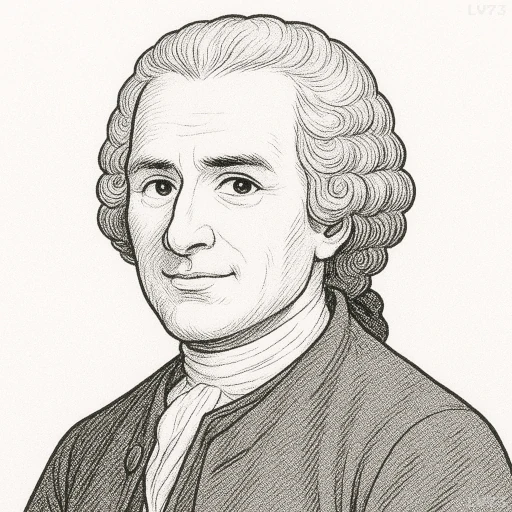“Our greatest evils flow from ourselves.”

- June 28, 1712 – July 2, 1778
- Born in Geneva
- Philosopher, political philosopher, writer, composer
table of contents
Quote
“Our greatest evils flow from ourselves.”
Explanation
In this quote, Jean-Jacques Rousseau reflects on the idea that many of the problems or misfortunes individuals experience are self-inflicted. Rousseau suggests that the greatest sources of suffering, corruption, or strife come not from external forces but from within—from our own choices, decisions, and internal conflicts. This perspective emphasizes the idea that human nature, in its struggle with ego, self-interest, and pride, often leads to the greatest evils in our lives, whether through wrongdoing, disharmony, or moral failure. Rousseau is pointing to the self-destructive tendencies inherent in human beings and how these internal conflicts can lead to negative outcomes.
Historically, Rousseau’s emphasis on the self as the source of evil reflects his broader critique of society and human nature. He believed that civilization and its institutions corrupted the natural goodness of individuals, causing people to act out of self-interest, greed, or vanity. In works like The Social Contract and Emile, Rousseau argued that when individuals are separated from their natural, uncorrupted state, they fall prey to the negative influences of society, which often bring about moral and social evils. Rousseau’s focus on internal, self-imposed sources of evil aligns with his idea that true virtue and freedom can only be achieved through a process of self-examination and alignment with one’s natural, untainted instincts.
In modern times, this quote can be seen as a reflection on personal responsibility and the role of self-awareness in overcoming challenges. In a world where external circumstances often seem overwhelming, Rousseau’s words remind us that inner conflict, flaws, and moral shortcomings are often the root causes of our struggles. Whether in relationships, mental health, or societal issues, our greatest obstacles may be self-imposed, arising from unresolved inner turmoil, bad habits, or negative thought patterns. Rousseau’s reflection encourages a focus on personal growth, self-discipline, and moral development as the keys to overcoming adversity and minimizing the self-inflicted suffering that often shapes our lives.
Would you like to share your impressions or related stories about this quote in the comments section?
